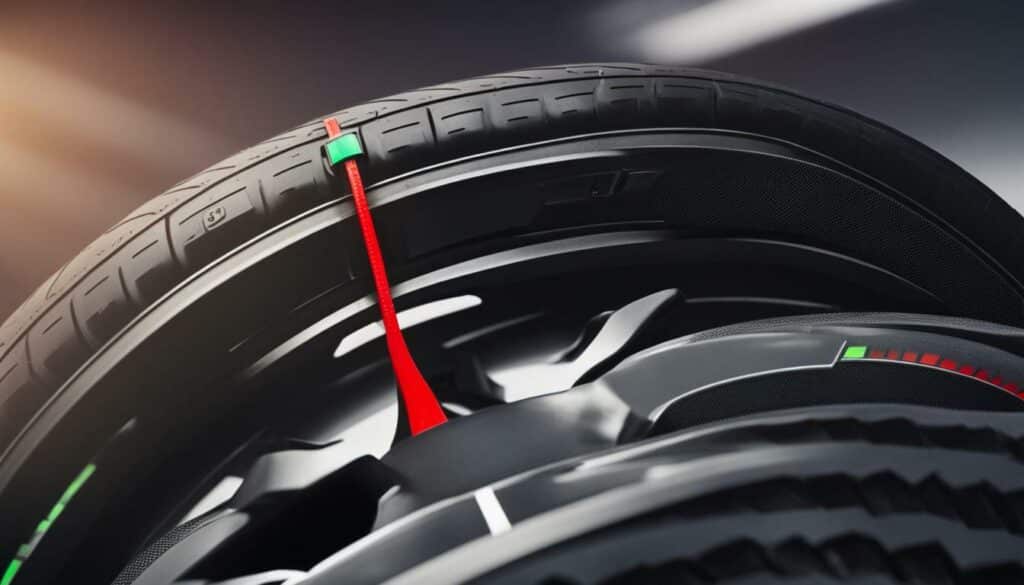As a car enthusiast, you may be looking for ways to customize and modify your vehicle to make it stand out on the road. However, before making any changes to your car, it’s important to understand the rules and regulations surrounding vehicle modifications in New Zealand.
There are specific guidelines set by the New Zealand Transport Agency (NZTA) to ensure the safety and compliance of vehicles on the road. That being said, there are still plenty of unique vehicle modifications that are legal in New Zealand, allowing you to express your style and enhance your driving experience.
- It’s important to understand the rules and regulations surrounding vehicle modifications in New Zealand before making any changes to your car.
- The New Zealand Transport Agency (NZTA) has specific guidelines in place to ensure vehicle safety and compliance.
- Despite these regulations, there are still plenty of unique vehicle modifications that are legal in New Zealand.
- Legal car modifications in New Zealand include aftermarket exhaust systems, suspension modifications, and cosmetic enhancements.
- Custom vehicle modifications, such as paint jobs, body kits, and interior modifications, can also be done legally within certain guidelines.
Understanding Vehicle Modification Guidelines in New Zealand
As a car enthusiast in New Zealand, it’s important to understand the guidelines and regulations set forth by the New Zealand Transport Agency (NZTA) regarding vehicle modifications. Not only do these guidelines ensure the safety of drivers and passengers, but they also ensure that modifications are legal and compliant with the law.
Before making any modifications to your vehicle, it’s important to consult the NZTA website and familiarize yourself with the guidelines and regulations. In general, modifications that alter the performance or safety of a vehicle will require approval from the NZTA.
The approval process involves providing detailed information about the proposed modifications, such as technical specifications and safety features. The NZTA will review this information and either approve or deny the modification.
Some examples of modifications that require approval include engine swaps, brake upgrades, and suspension modifications. It’s important to note that modifications that affect the emissions of a vehicle may also require approval from the Environmental Protection Agency (EPA).
Additionally, certain modifications may be prohibited altogether. For example, it is illegal to modify a vehicle’s exhaust system to produce excessive noise or emissions that exceed the legal limit.
Overall, it’s important to stay up-to-date on vehicle modification guidelines and regulations in New Zealand to ensure that your modifications are legal and safe. By following the approval process and adhering to the guidelines set forth by the NZTA, you can be sure that your modifications are compliant with the law.

When it comes to legal car modifications in New Zealand, car enthusiasts have a variety of options to choose from. Whether you are looking to upgrade your exhaust system, suspension, or add cosmetic enhancements, there are regulations you must abide by for your modifications to be legal.
One popular modification in New Zealand is aftermarket exhaust systems. If you want to upgrade your exhaust system for better performance and sound, it must comply with the Noise Standard Regulations. The regulations set a limit for the maximum noise level a car can make. Any exhaust system that produces more than the set limit is illegal and could result in fines or even the rejection of your WOF (Warrant of Fitness).
Suspension modifications are another common legal car modification in New Zealand. You can modify your suspension in two ways, either by lowering or raising your vehicle. However, there are rules regarding how low or high your vehicle can be. For example, your vehicle can only be lowered by a maximum of 50 mm, and your vehicle must not exceed 100 mm ground clearance if it is raised.
Cosmetic enhancements are also popular in New Zealand. These modifications include body kits, spoilers, and custom paint jobs. These modifications are subject to strict regulations by the NZTA. Any body modifications must not interfere with the car’s safety features, such as airbags and seatbelts. The color of the car’s lights, such as headlamps and taillights, must also meet specific standards.

It’s essential to remember that if you modify your car, you must get it certified to be roadworthy. This certification ensures that your car modifications do not compromise the safety of your vehicle or other road users. You can get your certification from VINZ, VTNZ, or AA.
Some car modifications, such as dark tinted windows and neon lights, are illegal in New Zealand. It’s always best to refer to the NZTA guidelines for car modifications to avoid any legal issues.
Custom Vehicle Modifications in New Zealand
For car enthusiasts in New Zealand, custom vehicle modifications offer a unique opportunity to create a personalized vehicle that stands out on the road. However, it’s important to note that any modifications made to a vehicle must comply with the guidelines and regulations set forth by the New Zealand Transport Agency (NZTA).
Custom modifications can range from simple cosmetic enhancements to more complex modifications that alter the vehicle’s performance and driving characteristics. Some popular modifications include paint jobs, body kits, and interior modifications.
| Modification | Permissible or Not? |
|---|---|
| Paint jobs | Permissible |
| Body kits | Permissible if they do not alter the vehicle’s dimensions or exceed the ground clearance requirements |
| Interior modifications | Permissible as long as they do not affect the safety of the vehicle |
It is important to note that any custom modifications made to a vehicle must comply with safety standards and undergo necessary certification before being deemed legal for road use. This includes modifications to the suspension, braking system, and engine, which can significantly affect the handling and performance of a vehicle.
When considering custom vehicle modifications, it is important to do thorough research and consult with professionals to ensure compliance with vehicle modification laws in New Zealand. By doing so, car enthusiasts can personalize their vehicles while remaining compliant with the legalities.

It is important for vehicle owners in New Zealand to be aware of the laws and guidelines surrounding vehicle modifications. Failure to adhere to these laws can result in fines, impounded vehicles, and even criminal charges. As such, it is crucial to consider the following key points when modifying your vehicle:
- Compliance with Regulations: Firstly, it is essential to ensure that your modifications comply with the regulations set forth by the New Zealand Transport Agency (NZTA). This includes guidelines on tires and wheels, exhaust systems, and more. Before making any modifications, be sure to check the NZTA website for guidelines and seek approval for any non-standard modifications.
- Safety Standards: All vehicle modifications must meet safety standards, and it is important to ensure that any changes made do not compromise the safety of the vehicle or other road users. Modifications that affect braking, steering, or suspension systems, for example, should only be performed by qualified professionals and approved by the NZTA.
- Certification: Many vehicle modifications require certification to ensure that they comply with legal requirements. For certain modifications, such as aftermarket exhaust systems, emissions certification is required. Other modifications may require a low volume vehicle (LVV) certification. It is important to research the requirements for your specific modifications and obtain the necessary certification before hitting the road.
- Insurance: It is essential to inform your insurer of any vehicle modifications, as they may affect your coverage. Failure to disclose modifications could result in your policy being voided in the event of an accident.
By considering these key points and adhering to vehicle modification laws in New Zealand, you can enjoy the process of customizing your vehicle without running afoul of the law.

In conclusion, as a copywriting journalist, I have provided a comprehensive guide to unique vehicle modifications that are legal in New Zealand. Throughout this article, we have explored the guidelines and regulations surrounding vehicle modifications, discussed legal car modifications, and delved into the realm of custom vehicle modifications.
It is essential to keep in mind that modifying a vehicle can be exciting, but it is vital to adhere to the laws and regulations set forth by the New Zealand Transport Agency (NZTA). Safety standards, certification, and compliance with vehicle modification laws are crucial considerations when modifying your car. As car enthusiasts, we can enjoy the process of making our vehicles unique while also remaining compliant with the legalities.
In summary, by following the guidelines and laws, we can ensure that our modified vehicles adhere to safety standards and meet legal requirements. This guide has provided a valuable resource for anyone in New Zealand looking to modify their vehicle and create a unique and personalized design.
FAQ
What are the guidelines for vehicle modifications in New Zealand?
The New Zealand Transport Agency (NZTA) has specific guidelines and regulations for vehicle modifications. It is important to consult the NZTA’s website or seek professional advice to ensure compliance with these guidelines.
What types of vehicle modifications are legal in New Zealand?
There are various vehicle modifications that are deemed legal in New Zealand. These include aftermarket exhaust systems, suspension modifications within certain limits, seat replacements, cosmetic enhancements such as window tinting and aftermarket wheels, and certain custom paint jobs.
Do I need approval for vehicle modifications in New Zealand?
Some vehicle modifications require approval from the NZTA or a certified engineer. It is crucial to determine whether your specific modification requires approval and follow the proper procedures for obtaining it.
What safety standards should I consider when modifying my vehicle?
When modifying a vehicle, it is essential to ensure that the safety standards outlined by the NZTA are met. This includes maintaining proper structural integrity, ensuring proper lighting and visibility, and following guidelines for tire sizes and clearance.
Are there specific certifications required for vehicle modifications?
Certain vehicle modifications may require certification from an approved certifier in New Zealand. This certification ensures that the modification meets the necessary safety and compliance standards.
How can I ensure compliance with vehicle modification laws in New Zealand?
To ensure compliance with vehicle modification laws in New Zealand, it is recommended to consult the NZTA’s guidelines, seek professional advice if needed, and adhere to the specific requirements for each modification. Additionally, it is important to keep documentation of any approvals or certifications obtained.




